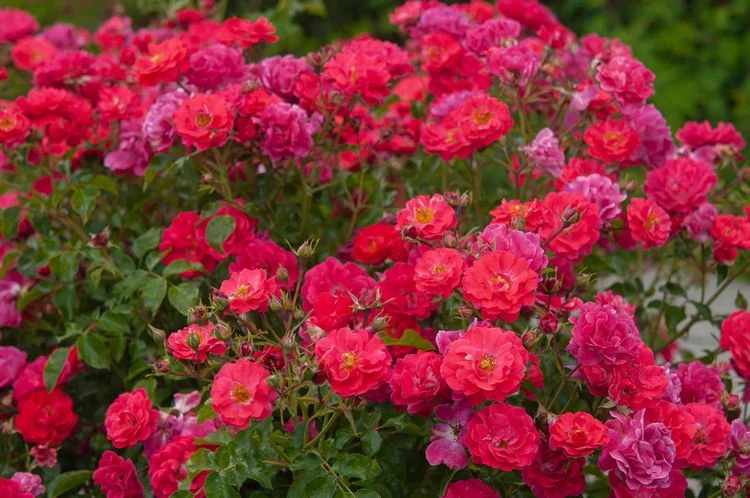Roses are valued not only for their aromatic scent but also for their eye-catching looks. A well cared for flowering rosebush can be grown as a focal point in your garden, as an addition to your perennial beds or as a hedge to protect your privacy. With the following tips for lush rose blooms, you’ll enjoy bigger, brighter, and fragrant flowers all summer long.
Tips for lush rose blooms: how to encourage lasting blooms
Roses are certainly one of the most beautiful flowers that we can grow in our garden. They come in a variety of colors and make a great decoration for any outdoor space. With a little care and attention, you can keep your roses blooming all season long.
Cut the roses regularly
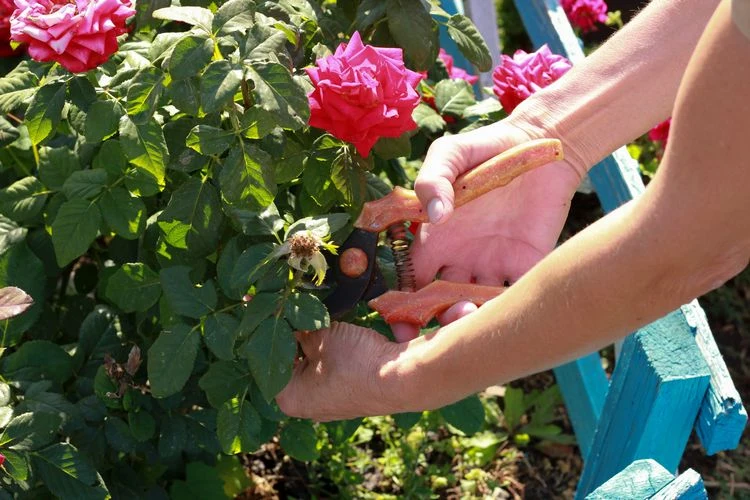
One of the best tips for getting your plant to bloom profusely is regular pruning.
Remove any dead, damaged or diseased shoots to encourage new growth. Cut all black shoots back to healthy green growth. Eliminate the shoots inside the plant that are crossing each other to facilitate air circulation.
Removing old blooms is also necessary as it encourages new blooms to form. As long as you consistently remove faded flowers, your rose will continue to bloom all summer instead of wasting energy on seed formation. Use clean, sharp pruning shears and cut just below the flower head.
Keep in mind that removing flower heads from one-flowering roses will not result in additional blooms. These varieties only flower once a year, but they have other advantages.
Fertilize the rose bushes properly
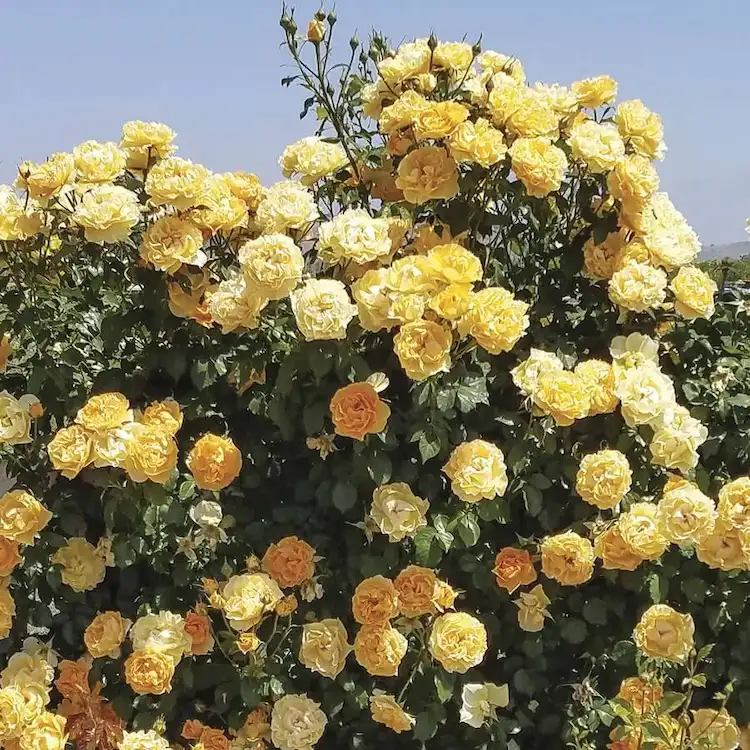
Like many plants with large flowers, roses are heavy feeders and if they bloom all summer they will need at least three feeds. The first fertilizing should be done in spring, and the next two – in mid-June and July, so that the flowers continue to grow.
We’ve rounded up the best natural fertilizers that will encourage lush rose blooms.
- Eggshells: They are rich in calcium and this strengthens the rose’s tissues, resulting in a healthier bloom. Crush the eggshells and sprinkle them over the soil around the rose.
- banana peels: They contain phosphorus, which promotes flowering. Crush 2-3 banana peels in a blender, add some water and let the mixture sit for 15 minutes. Then pour the solution directly onto the ground under the rose once a week.
- coffee grounds: The nitrogen in the coffee grounds is very helpful for roses. Sprinkle some on the ground, being careful that too much can damage the roses.
- Alfalfa: It provides roses with nitrogen, calcium, phosphorus, iron and other nutrients. Work alfalfa meal or alfalfa pellets into the soil around the plant, using 35g for a larger shrub and 18g for smaller shrubs.
Choose the right location
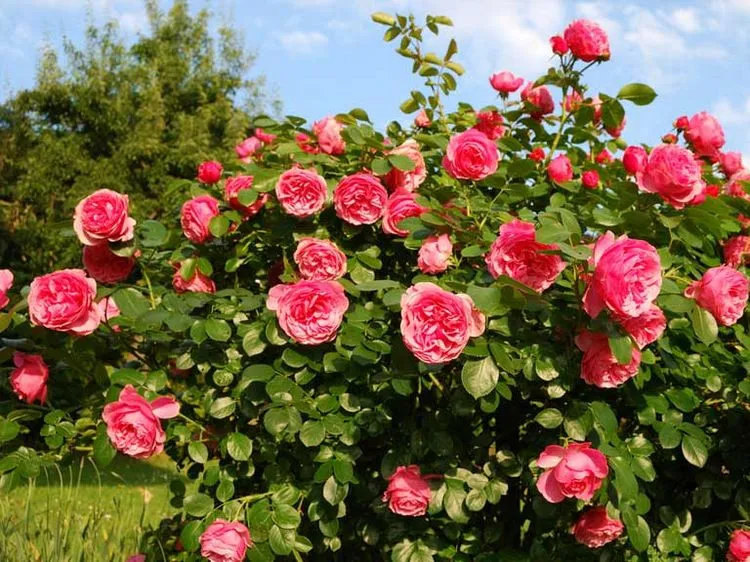
Like all flowers, roses need a lot of sunlight. Make sure your roses are in a spot that gets at least six hours of sun a day for them to bloom properly. A shady location will result in less or no flowering.
Make sure your roses have enough room to grow. A good spacing of 60cm to 90cm between plants is crucial for air circulation and root spread.
The moist soil promotes flowering
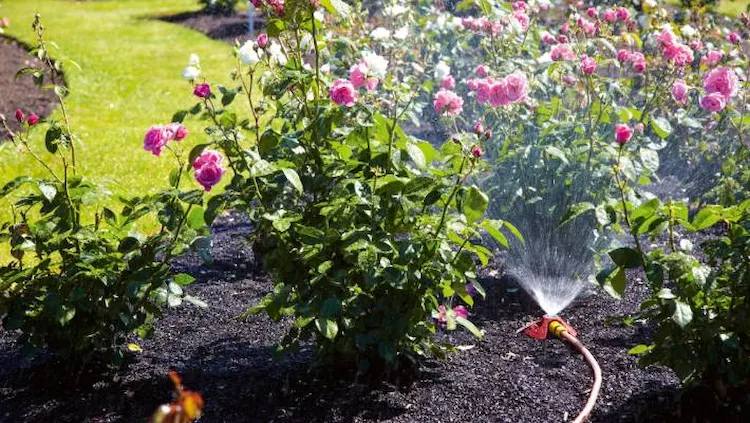
Roses do best in full sun in cool, moist soil. They have higher water requirements in the summer when new growth kicks in and flower buds develop.
For a longer flowering period and lush flowers you should keep the soil evenly moist.
Water the roses thoroughly, watering newly planted shrubs every other day and established roses once a week.
Tips for lush rose blooms: Mulch
Mulch the roses to get more rose petals. Apply a 5 cm layer on the ground, keeping a distance of 8 cm from the rose. Be careful not to let the mulch come into contact with the rosewood.
The mulch will help keep the soil cool and provide nutrients to the plant. In this way you offer your roses the ideal conditions for stronger, lush flowering.
Treat pest infestation quickly
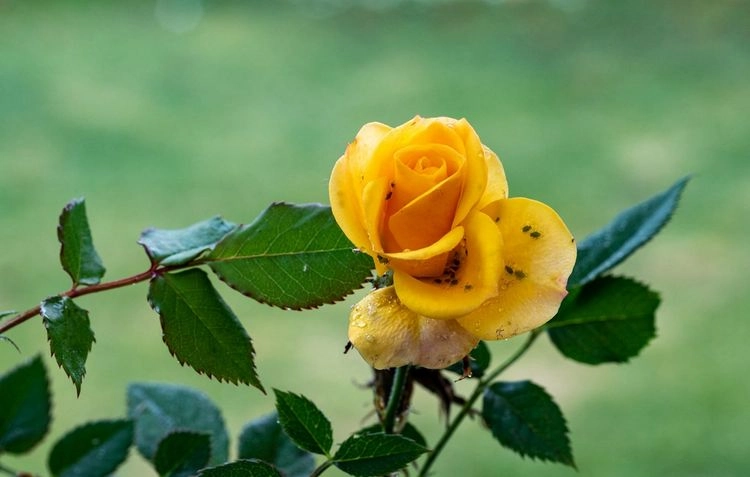
Rose flowering can be affected by pests such as aphids, thrips, spider mites and whiteflies as they eat the leaves and destroy the flowers.
It is therefore important to check the roses regularly and to quickly identify and treat the pest infestation. Aphids and spider mites can be easily controlled with a garden hose to keep them at bay, or you can fight them naturally.
prevent diseases
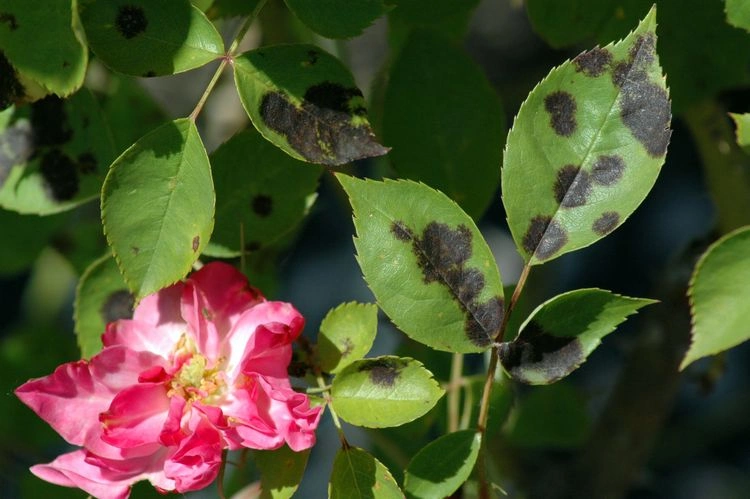
Diseases such as black spot, powdery mildew, and rose rosette virus can not only damage the plant, but also affect flowering.
Only water the roses at the base to prevent fungal diseases and keep a reasonable distance between plants for better air circulation.
